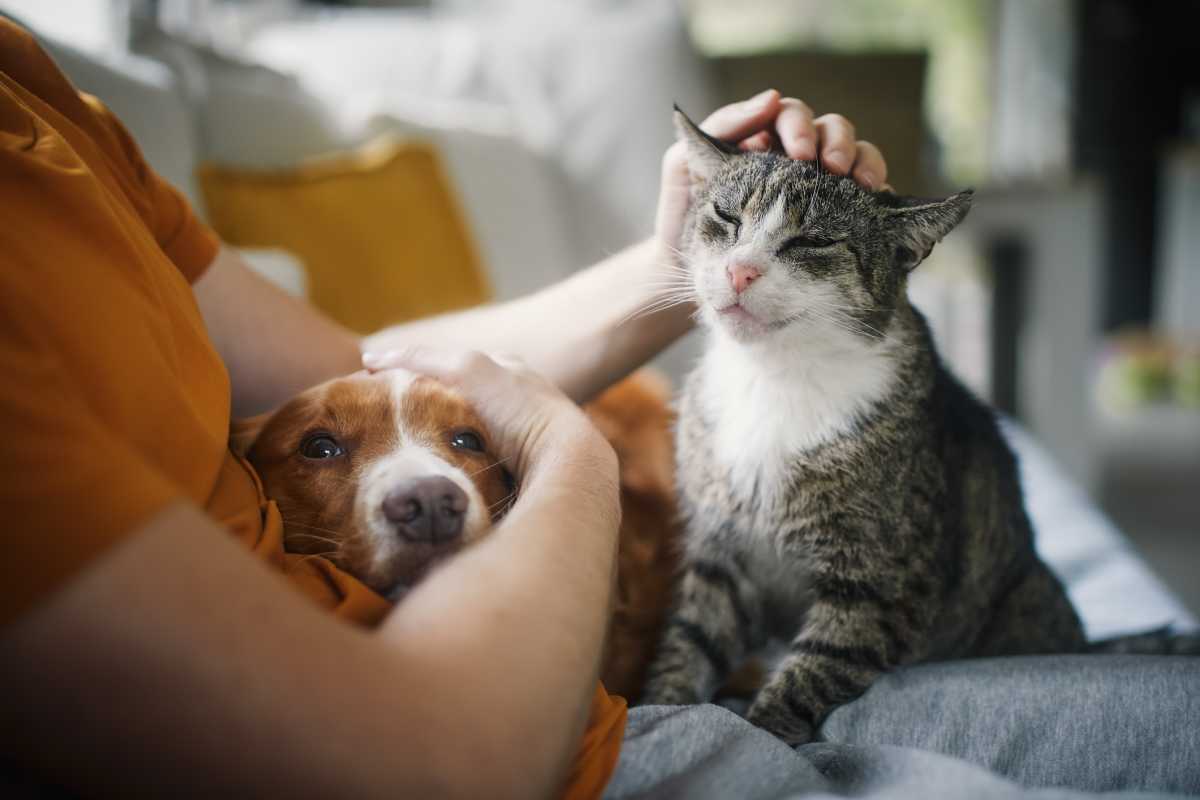Research finally answers the age-old question: Do pet owners love their dogs or cats more?

A research study aimed to finally settle the debate on cats and dogs. Are you a cat person? Or do dogs simply take over your heart at first sight? Dr. Peter Sandoe of the University of Copenhagen led an important study to answer the ultimate question on the favorite pet choice–dogs or cats. To understand the dynamics of pet preferences, a team of researchers surveyed thousands of pet owners from three countries in Europe. The findings tell the tale of a different story that is far from black and white, as per the study published in the journal Frontiers in Veterinary Science.

Dr. Sandoe considered a myriad of factors, rather than just animal behavior, to base his conclusion on. Cultural heritage, emotional ties, and financial aspects greatly influence what pet owners prefer as pawed companions. The Lexington Attachment to Pets Scale (LAPS) was a tool integral to the study and assessed emotional bonds with statements from owners, such as “My pet is my best friend” or “My pet knows when I’m feeling bad.” 2,100 people across Denmark, Austria, and the U.K. participated in the survey and answered questions including their age, gender, and education. Precisely, 844 dog owners, 872 cat owners, and 401 people who own both were surveyed to reveal a complex story that extends beyond cats versus dogs.

Austria consistently fared higher on cat preference across all factors, from ownership to LAPS responses, and health insurance and willingness to pay for life-saving treatments. Whereas Denmark had a clear-cut love for dogs over cats. In the UK, the gap between dogs and cats was narrow as citizens showed equal interest in adopting and caring for both animals. On average, the LAPS assessment found that dogs were a consistent preference across all nations. However, the gap between cats and dogs varied, with the UK showing the least and Denmark with the widest. As one may expect, dogs are not preferred over cats simply because of their difference in behaviors, but also due to historical significance, vet expenses, and emotional factors.
A report by The Brighter Side of News states that countries that urbanized earlier, like the UK, were able to develop closer relationships with cats. In rural areas, however, dogs are an essential part of daily life as they assist humans in the fields and on farms. It’s no secret that dogs are man’s best friend, a saying that stems from the long history of cooperation between humans and dogs. Whereas cats led independent lives outside human settlements, taking care of pests, Denmark, which urbanized later than the UK, showed an old view of cats and hence, the preference for dogs. “The degree of difference varied dramatically between countries,” said Dr. Sandoe.

Money was another factor. While it may seem like pets with health insurance mean that the pet owner loves them more, the study found a subtle link with practicality. Dogs are generally more expensive to maintain than cats. Likewise, vet services for dogs also cost more. Health insurance is a viable option to tackle those expenses without burning a hole in your pocket. Besides that, dogs are more pleasing and give the owner a sense of control over them. Cats, on the other hand, are creatures of their environment. They are self-reliant and do not jump and twirl over their owner’s commands. Moreover, cats also tend to show a lesser emotional attachment to their owners, unlike dogs.
To surmise, the study suggests the culture hypothesis, meaning pet owners treat their pets that mirror traditions, living environments, and the history with humans. Nevertheless, the research does have its limitations, as the findings are solely based on pet owners in Europe. The statistics may vary in other continents, like Asia or Latin America.